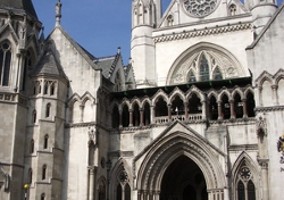The Times has accused the Joseph Rowntree Charitable Trust (JRCT) of funding groups with links to terrorism in Northern Ireland for the second time in recent weeks.
The front page of the Times reported that the trust has given more than £385,000 to Conflict Resolution Services Ireland (CRSI), a charity registered in Northern Ireland that has “close ties to the suspected leaders of a dissident terrorist group responsible for multiple recent gun and bomb attacks in Northern Ireland”.
However JRCT has defended funding CRSI, saying that the trust has no relationship with any armed groups or proscribed organisations, but that its work to end violence in Northern Ireland “has required engaging with those previously involved in conflict and now committed to peace”.
In July, the Times reported that JRCT had funded a charity with alleged links to a terrorist organisation in Northern Ireland and a Yorkshire charity that has accused an MP of racism. This prompted the Charity Commission to ask JRCT to explain its decision.
The Commission has today confirmed that it is still engaging with JRCT, and that it will “will pick up any residual matters about the charity’s monitoring of existing grant arrangements and decisions,” but added “we do not provide running updates on live cases”.
The Times reported that CRSI’s Belfast offices had twice been raided by counterterrorism police.
It also said that one of the charity’s employees lost his job after he was arrested and charged with directing terrorism; that a present staff member was jailed in 2012 for a botched attempt to kneecap a teenager; and that its chair of trustees said that the assassination of a Conservative MP was a “legitimate exercise”.
It said that the charity has been under investigation by the Charity Commission for Northern Ireland for the past 16 months.
‘No relationship with any armed groups’
In a statement, JRCT said that it had “no relationship with any armed groups or proscribed organisation" and that it had worked to end violence in Northern Ireland for more than 40 years.
It added that its “demilitarisation funding is only for those organisations which are committed to tackling the legacy of conflict-related violence and are seeking ways to bring about positive change in their communities”.
Engaging with those ‘previously involved in conflict’
JRCT said that the ongoing peace process in Northern Ireland has “required engaging with those previously involved in conflict and now committed to peace, in order to facilitate a transition to purely democratic and peaceful society”.
It added that “such work has been supported by many funders. To criticise the principle of this work is to criticise the foundations on which the peace process has been built”.
It said in the statement: “During a two-year period leading up to their most recent grant, CRSI sought to mediate on behalf of 704 individuals who felt they were under threat of paramilitary violence. CRSI were able to successfully resolve almost all of these cases: protecting lives and reducing harm.
“CRSI have also made a significant contribution by their engagement with republicans who are outside of the peace process in efforts to reduce conflict. They have used a variety of peacebuilding methods to work towards this goal.”
JRCT confirmed it had made a total of four grants to CRSI between 2012 and 2018, totalling £388,741, but added that the grants are paid in quarterly instalments and, to date, none of the 2018 grant (£120,621) has been paid.
‘Charities should be able to justify funding decisions’
The full statement from the Charity Commission on its work with JRCT said: “As we have previously confirmed, we have current regulatory engagement with JRCT, as part of which we are looking to ensure that the charity has addressed the issues we identified in our previous engagement with the charity between 2013 and 2016.
“At that time, we identified that improvements to the charity’s processes and procedures were needed to ensure robust scrutiny and control of funds, particularly when giving grants to non-charitable bodies. The charity showed a willingness at that time to improve aspects of its processes, and indeed our report recognised steps the charity had taken to do so.
“As part of our current regulatory engagement with JRCT we will pick up any residual matters about the charity’s monitoring of existing grant arrangements and decisions; we do not provide running updates on live cases.
“Our guidance makes clear that charities need to carry out appropriate due diligence on organisations applying for grants and that trustees must ensure that grants awarded are only for activities that further the charity’s purposes. Charities should be able to explain and justify their funding decisions if concerns are raised with them and we would expect JRCT to be able to do so.”
The CRSI had not responded to an invitation to comment at the time of publication.
Related articles











